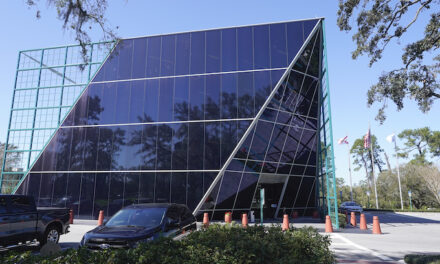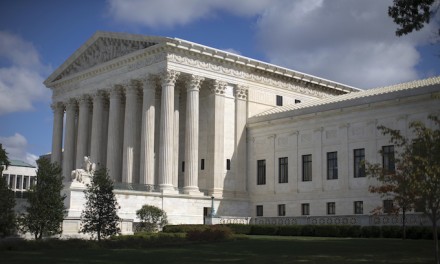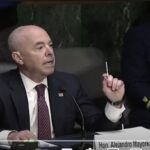Six prominent foundations have teamed up to establish a $5.7 million fund supporting Detroit nonprofits led by people of color.
Like many of its peers, the Detroit Residents First Fund aims to use its assets to “transform neighborhoods in Detroit with the least access to power and social capital,” according to a press release issued Wednesday. But the Detroit Residents First Fund will operate differently than most others in Michigan.
One difference: The fund will exclusively support organizations that are led by Black, indigenous and other people of color. Leaders have pointed to research showing that organizations led by people of color typically receive less monetary support than those run by white people.
There will also be differences in who decides where assets go. Community leaders and representatives of the foundations will collectively agree how to disperse grant funds, creating a shared-power structure that is considered unique among Michigan nonprofits.
“We’re all at the table together,” said Daija Butler, assistant director of planning for the Wayne Metropolitan Community Action Agency who oversees the DRFF. “We’re sharing decision power. Residents are at the core of all the decisions we make.”
This style of participatory grantmaking, in which multiple stakeholders have a say, will help “advance equity in philanthropy,” organizers say.
“The Ford Foundation has long supported efforts that activate the voice and leadership of communities who have been traditionally kept away from the decision-making tables,” said Kevin Ryan, Detroit program officer for the Ford Foundation, in a statement. “We are proud to support the Detroit Residents First Fund’s work to support and elevate the voices of committed, compassionate and engaged citizens who are working to transform the city we call home.”
In addition to the Ford Foundation, the W.K. Kellogg Foundation, Wayne Metropolitan Community Action Agency, Community Development Advocates of Detroit, Fred A. and Barbara M. Erb Family Foundation and Skillman Foundation have all signed on to the fund.
Once accepted, Butler said organizations in the fund receive $50,000 annually for up to three years. The fund does not plan to put any stipulations on which specific projects or areas an organization in the fund can spend their grant dollars on — unlike some other funds, Butler said, which require that funding go toward selected initiatives.
“They have the freedom and the flexibility to invest the money in the projects that are specific to their particular neighborhood,” Butler said.
Avalon Village, People’s Water Board and We the People of Detroit are among the 15 organizations participating in the fund’s pilot. The fund has given $1.4 million in total to the pilot organizations.
These organizations become part of a cohort that also receives peer guidance and mentorship. Leaders of these organizations also receive training in leadership and organization infrastructure development so they are “set up for success,” Butler said.
She said the fund anticipates accepting more organizations in the fall.
The fund hopes to increase its assets and provide $10 million to organizations over the next five years.
___
(c)2021 The Detroit News
Visit The Detroit News at www.detnews.com
Distributed by Tribune Content Agency, LLC.
—-
This content is published through a licensing agreement with Acquire Media using its NewsEdge technology.



















Is it just me? Whites can’t put on Black Face in the name of innocent fun because its considered racist and discriminatory—but it seems Blacks can assume Privilege with no issues. Do the real discriminators have the nerve to please stand up?
Unfortunately, no they DON’T have the nerve…
5.7 million dollars. Might as well flush it down the toilet.
What are the actual goals? Nothing is mentioned in the way of concrete plans to be implimented. There are mentions of training, advancing equity, elevate voices, but not one real goal that is targeted. Will that money find its way into luxury homes, private islands, foreign bank accounts? It’s all too vague.
The actual goals? Why to pay big salaries to those who run the programs. Allowing them to spread the wealth by buying expensive houses, cars, clothing, jewelry and the like. Doncha know?
THe ‘actual goals’> WHO CARES.. dey be helpin da black man, stick it to whitey…
The liberal mantra: Equality for all, as long as they are not white!
More like, Equality to all, OTHER THAN WHITES (especially white europeans, and asians who they COUNT as white).. BUT especially if they are black..
Given the choice, if you had to have a critical surgery procedure performed, would you choose: candidate A, who has 30 years of experience, graduated at the top of his class, has a spotless record of accomplishment, has an incredible work ethic, and accepts responsibility for his actions—-Or—-candidate B, who had a mediocre school record, was advanced by decree rather than accomplishment, has no experience, owns a criminal record, seldom shows up for work, and who blames others for his mistakes?
The answer could make you a “racist” . .. or a hypocrite . . ..
A every day, and twice on sunday… AND TO HELL with anyone saying that “makes me racist”.
One difference: The fund will exclusively support organizations that are led by Black, indigenous and other people of color. Leaders have pointed to research showing that organizations led by people of color typically receive less monetary support than those run by white people.
You are going to PROVE this to us with facts and stats and paperwork , right?
PROOF?? HEllz no man.. WEZ don’t need proof. Wez got feelins.. BLACK POWAH!!
Does anyone not remember Obama administration giving Baltimore 1.8 billion dollars . And it disappeared ???? No one can Account for that money. So I have to wonder ,how much of this money will disappear and not help anyone ????
60% or more i figure…
Infuriating. I know enough people who are colored white who could use a leg up in this world to pursue the privilege of being a productive, law abiding member of society.
I was looking for financial aid for my Caucasian daughter who has enrolled in pharmacy tech school. She is a single mother who lost her job as a server at a nice restaurant. Online there were PLENTY of scholarships available for all kinds of minorities and they were also available for illegal aliens, DACA and the list went on. There was all of ONE scholarship that she would be eligible for. It is based On merit and financial need.
I had a friend who applied for admission to nursing school at a community college. They calculate your eligibility with a numerical score. Her score was just shy of what she needed. However, if she had been black she would have been admitted.
How can that even be legal? This country has gone to hell in a hand basket and I would leave it if I could. Maybe I could Go up to the Yukon and become an ice road trucker. Oh yeah can’t do that, the ice is too dangerous now. Doesn’t get frozen solid like it used to.
There’s no place to left to run and hide. Especially in CA where I was born and raised. Probably soon life in CA will be comparable to the movie
“The Road Warrior”.